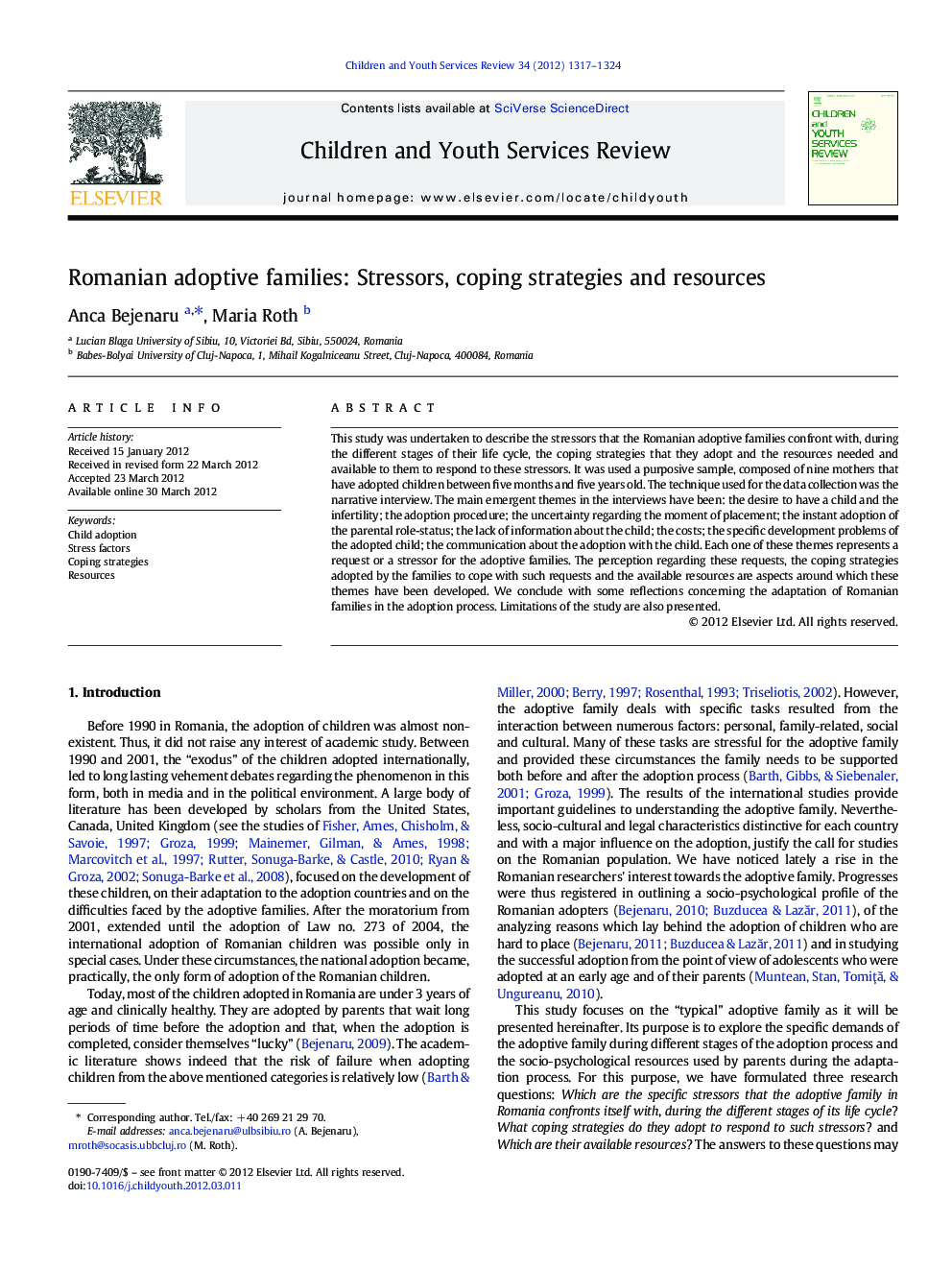| Article ID | Journal | Published Year | Pages | File Type |
|---|---|---|---|---|
| 346462 | Children and Youth Services Review | 2012 | 8 Pages |
This study was undertaken to describe the stressors that the Romanian adoptive families confront with, during the different stages of their life cycle, the coping strategies that they adopt and the resources needed and available to them to respond to these stressors. It was used a purposive sample, composed of nine mothers that have adopted children between five months and five years old. The technique used for the data collection was the narrative interview. The main emergent themes in the interviews have been: the desire to have a child and the infertility; the adoption procedure; the uncertainty regarding the moment of placement; the instant adoption of the parental role-status; the lack of information about the child; the costs; the specific development problems of the adopted child; the communication about the adoption with the child. Each one of these themes represents a request or a stressor for the adoptive families. The perception regarding these requests, the coping strategies adopted by the families to cope with such requests and the available resources are aspects around which these themes have been developed. We conclude with some reflections concerning the adaptation of Romanian families in the adoption process. Limitations of the study are also presented.
► We identified both strengths and weaknesses of the adoptive family. ► We ascertain strongly built ties over time within the adoptive families. ► Affection shown by child is an important resource for the adoptive family. ► Communication about adoption remains poor in the adoptive family. ► Deficient communication about adoption causes a constant level of stress in family.
